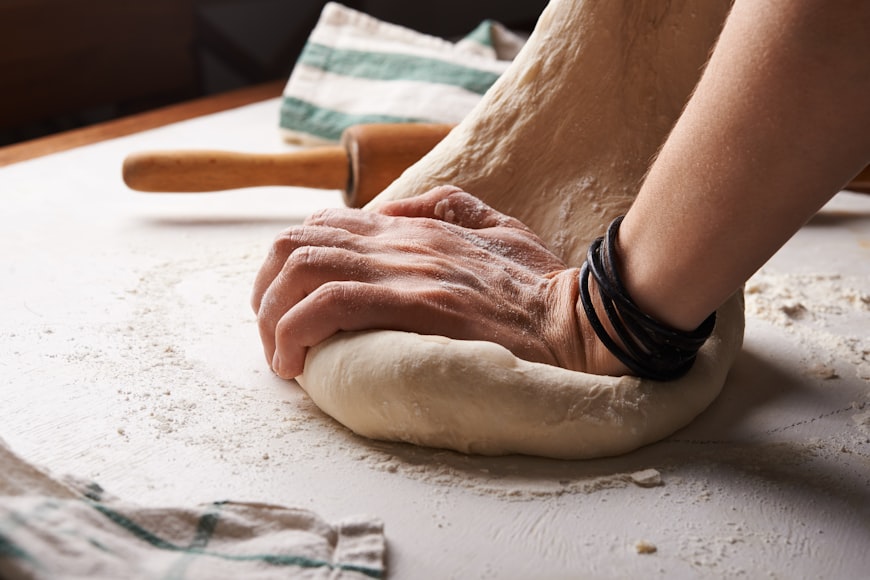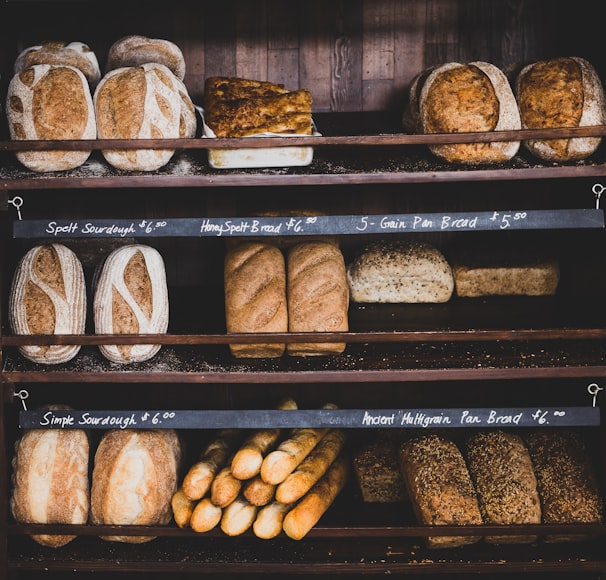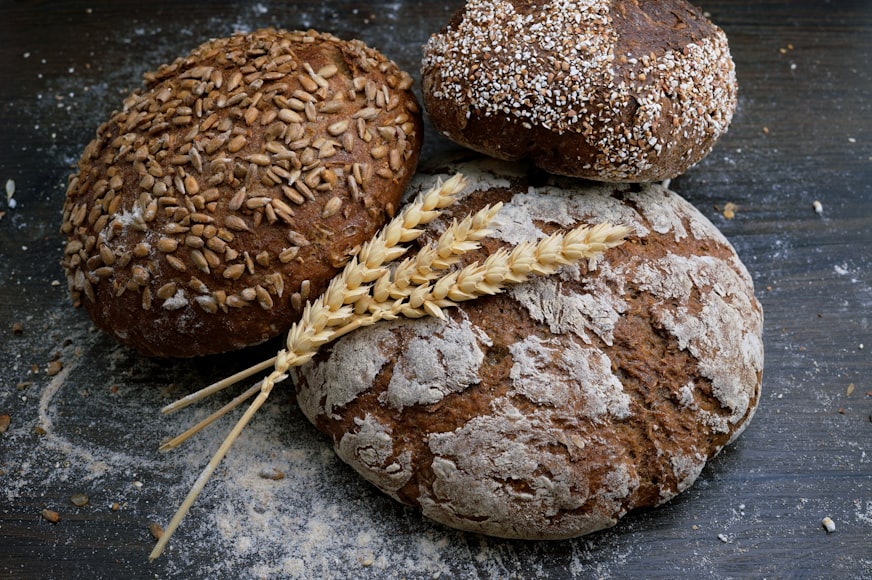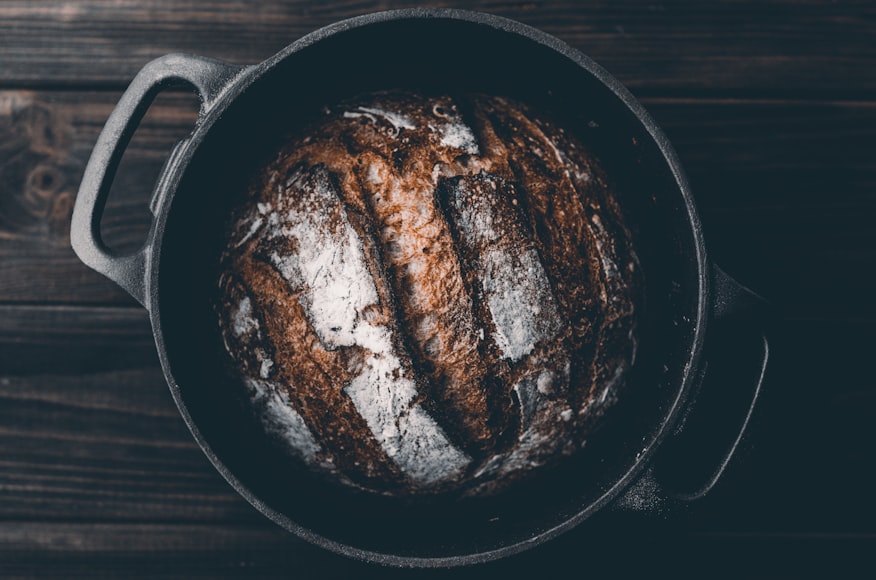I. Introduction

Introduction
Diarrhea is a common digestive issue in dogs, characterized by frequent, loose or watery stools. It can be caused by various factors, including dietary indiscretions, infections, parasites, or underlying medical conditions. When a dog experiences diarrhea, it’s crucial to provide proper nutrition to support their recovery and prevent dehydration.
Importance of Proper Nutrition During Diarrhea
During diarrhea, dogs lose essential fluids and electrolytes, which can lead to dehydration and electrolyte imbalances. Providing a bland and easily digestible diet can help soothe the digestive tract, reduce inflammation, and replenish lost nutrients.
Bread as a Potential Food Source for Dogs with Diarrhea
White bread is often considered a safe and bland food for dogs with diarrhea. It is low in fiber and fat, which makes it easy to digest. However, it’s important to note that white bread is not a complete and balanced diet and should not be the sole source of nutrition for a dog with diarrhea.
How to Feed Bread to Dogs with Diarrhea
- Start gradually: Begin by offering small amounts of white bread to your dog, such as a few pieces crumbled into their food.
- Mix with other bland foods: Combine white bread with other bland foods like boiled chicken, white rice, or pumpkin puree to create a more nutritious and palatable meal.
- Limit intake: Overfeeding bread can worsen diarrhea. Stick to small amounts as a supplement to their regular diet.
- Monitor your dog closely: If your dog shows any signs of worsening diarrhea, discontinue feeding bread and consult your veterinarian immediately.
Other Safe and Effective Foods for Dogs with Diarrhea
In addition to white bread, other foods that may be suitable for dogs with diarrhea include:
- Boiled chicken
- White rice
- Cottage cheese
- Pumpkin puree
- Scrambled eggs
- Potatoes without skin
When to Seek Veterinary Attention
While bread can be a temporary dietary supplement for dogs with diarrhea, it’s important to consult your veterinarian if:
- The diarrhea persists for more than 24 hours
- The diarrhea is accompanied by vomiting or lethargy
- Your dog has a fever or is refusing to eat
- You suspect your dog may have ingested something toxic
Conclusion
White bread can be a safe and bland food for dogs with diarrhea, but it should be offered in moderation and in conjunction with other nutritious foods. By providing a balanced and easily digestible diet, you can help your dog recover from diarrhea and maintain optimal health. If your dog’s diarrhea worsens or persists, it’s essential to seek veterinary care to rule out any underlying medical conditions.
II. Suitable Bread Types

Diarrhea, a common ailment in dogs, can be an unpleasant and uncomfortable experience for our furry companions. While there are numerous causes for diarrhea, it’s crucial to provide your dog with the appropriate dietary support to aid in their recovery. One potential option to consider is bread, but not all types are suitable for dogs with digestive issues.
When Can Dogs Eat Bread?
Generally, bread is not recommended as a regular part of a dog’s diet. However, in certain situations, such as diarrhea, small amounts of specific bread types can offer some benefits:
- Provide easily digestible carbohydrates for energy
- Help bind stools and reduce watery diarrhea
- Act as a bland food to settle the digestive system
Choosing the Right Bread for Dogs with Diarrhea
Not all types of bread are suitable for dogs with diarrhea. The following criteria should guide your selection:
- Low-Fiber: High-fiber breads can worsen diarrhea by stimulating the intestines and increasing stool volume.
- Easily Digestible: Breads made with refined grains, such as white bread, are easier for dogs to digest than those made with whole grains.
- Bland: Avoid breads with added spices, flavors, or sugars, as these can irritate the digestive tract.
Suitable Bread Types
Based on these criteria, the following bread types are generally safe and suitable for dogs with diarrhea:
1. White Bread
White bread is a refined grain bread that is low in fiber and easy to digest. It’s a good option for dogs with mild diarrhea who need a bland diet.
2. Brown Rice Bread
Brown rice bread is a slightly more nutritious option than white bread, as it contains some fiber. It’s still a relatively easy-to-digest bread that can provide some energy for dogs with diarrhea.
3. Oatmeal Bread
Oatmeal bread is a good source of soluble fiber, which can help bind stools and reduce diarrhea. However, it’s important to choose oatmeal bread that is low in sugar and additives.
How to Feed Bread to Dogs with Diarrhea
If you decide to feed bread to your dog with diarrhea, follow these guidelines:
- Small Amounts: Start with small pieces of bread, no larger than a thumbnail, and gradually increase the amount as tolerated.
- Avoid Overfeeding: Overfeeding bread can worsen diarrhea.
- Monitor Your Dog: Observe your dog closely after feeding bread to ensure they don’t experience any adverse effects.
Caution:
Bread should never be the primary source of nutrition for dogs. It’s a temporary dietary option to provide support during diarrhea. If your dog’s diarrhea persists or worsens, consult your veterinarian promptly as it may indicate an underlying health issue.
Conclusion
While bread can provide some benefits for dogs with diarrhea, it’s essential to choose the right types and feed it in moderation. White bread, brown rice bread, and oatmeal bread are generally suitable options that can aid in recovery. Always consult your veterinarian if your dog’s diarrhea persists or worsens.
III. Preparation

Diarrhea is a common digestive issue in dogs, causing loose, watery stools and abdominal discomfort. While it’s generally not a serious condition, it can be concerning and uncomfortable for your furry friend. Many pet owners wonder if bread is a safe and helpful food to offer dogs with diarrhea.
Bread for Dogs with Diarrhea: The Pros and Cons
Pros:
- Easily digestible: Toasted bread is low in fiber and relatively easy for dogs to digest, making it a potential option for soothing an upset stomach.
- Absorbent: Bread can help absorb excess moisture in the digestive tract, potentially firming up loose stools.
- Comforting: Plain bread can provide a sense of comfort and satiety for dogs experiencing diarrhea.
Cons:
- May contain unhealthy ingredients: Commercial breads often contain added sugars, salts, and other preservatives that can be harmful to dogs.
- Not a complete diet: Bread does not provide a complete nutritional profile for dogs and should not be used as a sole source of food.
- Can worsen diarrhea in some cases: Dogs with certain underlying medical conditions, such as gluten intolerance or pancreatitis, may experience worsening diarrhea if they eat bread.
Types of Bread for Dogs with Diarrhea
If you choose to offer bread to your dog with diarrhea, it’s important to choose a plain, white bread with no added sugars, salts, or preservatives. Toasted whole-wheat bread can also be an option, but it may be more difficult for some dogs to digest.
How to Prepare Bread for Dogs with Diarrhea
- Toast the bread lightly: This will make it easier for your dog to digest.
- Tear or cut the bread into small pieces: This will help prevent choking and allow for easier digestion.
How Much Bread to Feed a Dog with Diarrhea
The amount of bread you give your dog with diarrhea will depend on its size and overall health. Start by offering a small piece and gradually increase the amount if it’s tolerated well.
Other Tips for Managing Diarrhea in Dogs
In addition to bread, there are several other things you can do to help manage diarrhea in your dog:
- Provide plenty of fresh water: Dehydration is a common concern with diarrhea, so make sure your dog has access to plenty of fresh water at all times.
- Withhold food for 12-24 hours: Giving your dog’s digestive system a break can help to reduce diarrhea.
- Offer bland foods: Plain chicken, white rice, or boiled potatoes can help to soothe an upset stomach.
- Add probiotics: Probiotics are beneficial bacteria that can help to restore balance to the digestive system.
- Consider veterinary care: If your dog’s diarrhea is severe or persistent, or if they show other symptoms such as vomiting, lethargy, or lack of appetite, seek veterinary care promptly.
Conclusion
While bread can potentially be a helpful food for dogs with diarrhea, it’s important to choose a plain, whole-wheat or white bread without added sugars or preservatives. Offer it in moderation and monitor your dog’s response. If diarrhea persists or worsens, seek veterinary care for proper diagnosis and treatment.
IV. Feeding Guidelines

When your furry companion experiences an upset stomach, bland and digestible foods come to the rescue. Amidst the lineup of safe options, bread emerges as a potential dietary aid for dogs suffering from diarrhea. However, feeding bread to your dog requires adherence to specific guidelines to ensure its benefits and minimize potential risks.
Starting with a Small Amount is Crux:
Initiating any new food into your dog’s diet demands a cautious approach. Begin by offering a minimal amount of bread, preferably a bite-sized piece. Closely monitor your dog’s response. If all goes well, you can gradually increase the quantity based on their tolerance.
Combining Bread with Other Bland Foods:
To enhance palatability and nutritional value, mix the bread with other bland foods that meet your dog’s dietary requirements. Boiled chicken, plain yogurt, and pumpkin puree are excellent choices. These foods not only provide additional nutrients but also aid in soothing the gastrointestinal tract.
Room Temperature Reigns Supreme:
Offer the bread to your dog at room temperature. Cold bread can be harder to digest, which could exacerbate diarrhea. Room temperature bread is easier to break down and aids in the digestive process.
Monitoring is Mandatory:
After feeding your dog bread, monitor their condition closely for any signs of improvement or adverse effects. If diarrhea persists or worsens, discontinue bread consumption and consult your veterinarian.
Precautions to Consider:
While bread can be a helpful dietary aid in certain cases, it’s essential to understand potential precautions:
- Nutritional Imbalance: Dogs require a balanced diet that meets their nutritional needs. Bread alone cannot provide complete nutrition.
- Weight Gain: Bread contains carbohydrates, which can contribute to weight gain if consumed in excessive amounts.
- Yeast Infections: Bakery bread often contains yeast, which can cause infections in dogs with underlying health conditions.
- Allergies: Some dogs may be allergic to certain ingredients in bread, such as wheat or gluten.
Consultation with a Veterinarian is Key:
Before feeding your dog bread or any other dietary changes, it’s crucial to consult with your veterinarian. They can assess your dog’s individual needs, provide personalized advice, and rule out any underlying medical conditions that may require specific dietary interventions.
Additional Tips:
- Avoid feeding your dog bread with added flavors or preservatives.
- Choose whole-wheat bread or bread made from unbleached flour for added fiber and nutrients.
- Monitor your dog’s hydration level by providing ample access to fresh water.
- Gradually transition your dog back to their regular diet as their diarrhea subsides.
Conclusion:
Bread can be an effective adjunct to your dog’s diet when they experience diarrhea. By following the feeding guidelines outlined above, you can safely incorporate bread into their meals while ensuring their well-being. However, it’s essential to exercise caution, consult with a veterinarian, and monitor your dog’s response carefully. By adopting a holistic approach, you can support your dog’s recovery and restore their digestive health.
V. Benefits of Bread

As a dog parent, it’s distressing to witness your furry friend suffering from diarrhea. This common digestive upset can be caused by various factors, including dietary indiscretion, stress, or underlying health conditions. Fortunately, a bland diet, such as bread, can provide comfort and support during these trying times.
Why Bread is Beneficial for Dogs with Diarrhea
Bread, in moderation, can offer several benefits for dogs experiencing diarrhea. Here’s why:
-
Provides Easily Digestible Carbohydrates: Bread contains carbohydrates that are easily broken down and absorbed by dogs. These carbohydrates provide energy without putting strain on the digestive system.
-
Binds Stools and Absorbs Moisture: White bread, in particular, has a high starch content. Starch acts as a binder, forming a gel-like substance in the digestive tract. This gel absorbs excess moisture, helping to firm up loose stools.
-
Reduces Inflammation: Bread contains anti-inflammatory properties that can help soothe the digestive tract. Fiber in whole-wheat bread can also aid in reducing inflammation.
Types of Bread Suitable for Dogs with Diarrhea
Not all bread is created equal for dogs with diarrhea. The best choices include:
- White Bread: Plain white bread is the most recommended and well-tolerated option.
- Whole-Wheat Bread: While it contains more fiber, whole-wheat bread can still be beneficial, but feed it gradually to avoid further digestive upset.
- Homemade Bread: You can bake your own dog-friendly bread using simple ingredients like whole-wheat flour, water, and a touch of honey for sweetness.
How to Feed Bread to Dogs with Diarrhea
- Start Gradually: Introduce bread into your dog’s diet slowly, starting with small pieces. Monitor how they respond before increasing the amount.
- Avoid Certain Breads: Steer clear of breads containing raisins, chocolate, or other ingredients that are toxic to dogs.
- ** 搭配其他食物:** Mix bread with other bland foods, such as boiled chicken or rice.
- ** Hydration is Key:** Ensure your dog has access to plenty of fresh water, as diarrhea can lead to dehydration.
Precautions and Considerations
While bread can be a helpful temporary measure, it should not replace a balanced diet. Here are some precautions to take:
- Limit Consumption: Bread should be given in moderation as part of a bland diet. Overfeeding can lead to digestive upset or weight gain.
- Monitor for Allergies: Like humans, some dogs may be allergic to wheat or other ingredients in bread. Observe your dog for signs of an allergic reaction, such as itching, vomiting, or diarrhea.
- Consult a Veterinarian: Always consult with your veterinarian before making any significant changes to your dog’s diet, especially if they have underlying health conditions.
Conclusion
Bread, when given appropriately, can be a valuable addition to the diet of dogs with diarrhea. Its easily digestible carbohydrates, stool-binding properties, and anti-inflammatory effects provide comfort and support during digestive upset. By following these guidelines and consulting with your veterinarian, you can ensure that bread becomes a beneficial part of your dog’s recovery plan. Remember, a bland diet is a temporary measure, and a balanced and nutritious diet should be resumed once your dog’s digestive system has recovered.
VI. Caution
Diarrhea is a common ailment in dogs, causing discomfort and disruption to their daily routine. While it’s usually not a serious condition, it can be distressing for both dogs and their owners. Bread can be a useful tool in treating diarrhea, but it’s crucial to choose the right type of bread and administer it cautiously.
Benefits of Bread for Dogs with Diarrhea
- Bland and non-irritating: White bread is bland and easy to digest, making it a suitable option for dogs with upset stomachs.
- Absorbent: Bread helps absorb excess moisture in the digestive tract, which can help firm up stool.
- Carbohydrate source: Bread provides carbohydrates, which are an essential energy source for dogs.
- Appetizing: Bread is often appealing to dogs, making it a convenient way to administer medication or supplements.
Choosing the Right Bread
Not all bread is safe for dogs with diarrhea. Here are some guidelines to follow:
- Opt for white bread: White bread is the most preferred type of bread for dogs with diarrhea because it is bland and less irritating.
- Whole wheat bread: Avoid whole wheat bread, as it contains more fiber, which can irritate the digestive tract and worsen diarrhea.
- No seeds or raisins: Ensure that the bread does not contain seeds or raisins, as these can be toxic to dogs.
- Fresh and plain: Choose fresh, plain bread without any added ingredients, such as butter, salt, or sugar.
How to Feed Bread to Dogs with Diarrhea
- Start with small amounts: Initially, offer small pieces of bread, no larger than a thumbnail.
- Monitor their response: Observe your dog after feeding them bread to ensure they do not experience any adverse reactions, such as vomiting or increased diarrhea.
- Gradually increase the amount: If your dog tolerates the small pieces well, you can gradually increase the amount as needed.
- Do not overfeed: Bread is only intended as a temporary measure to help firm up stool. Avoid overfeeding your dog with bread, as it can lead to weight gain.
Other Considerations
- Consult your veterinarian: Always consult with your veterinarian before giving your dog bread to treat diarrhea. They can rule out any underlying medical conditions and provide personalized recommendations.
- Cooked chicken rice: Another effective home remedy for canine diarrhea is cooked chicken and white rice. This combination is bland and easy to digest, but it does not contain the absorbent properties of bread.
- Probiotics: Probiotics are beneficial bacteria that can help restore balance to the digestive system. You can find probiotics in supplements or certain types of yogurt.
- Avoid dairy: Dairy products, such as milk and cheese, can worsen diarrhea in dogs.
Conclusion
Bread can be a safe and effective way to help soothe diarrhea in dogs. By choosing the right type of bread and administering it cautiously, you can provide relief to your furry companion. Remember to consult with your veterinarian if diarrhea persists or worsens. With proper care and attention, your dog’s digestive system can return to normal in no time.
VII. Additional Nutritional Support
Diarrhea, a common ailment in dogs, can cause discomfort, dehydration, and nutrient depletion. While adjusting your dog’s diet is crucial during this time, it’s essential to avoid potentially harmful foods like regular bread.
Why Regular Bread is Not Suitable for Dogs with Diarrhea
- High in Gluten: Many dogs are sensitive or allergic to gluten, a protein found in wheat bread. This can worsen diarrhea and cause further digestive upset.
- Low in Nutrients: Regular bread lacks the essential nutrients and electrolytes that a dog with diarrhea needs to recover.
- Can Ferment: The yeast in bread can ferment in the stomach, producing gas and bloating.
Why Certain Breads May Be Beneficial
While regular bread is not recommended for dogs with diarrhea, there are specific types of bread that can offer some nutritional support:
- White Rice Bread: White rice is easy to digest and binds stools, making it a good choice for dogs with diarrhea.
- Oatmeal Bread: Oatmeal contains soluble fiber that can help soothe the digestive tract and absorb moisture.
- Whole Wheat Bread Made with Probiotics: Some whole wheat breads contain added probiotics, which are beneficial bacteria that support a healthy gut microbiome.
When to Offer Bread to a Dog with Diarrhea
Small amounts of bread can be offered to a dog with diarrhea only after the following conditions have been met:
- The diarrhea has subsided slightly: Do not offer bread when the diarrhea is severe.
- Your dog is showing no signs of vomiting: Vomiting can worsen diarrhea and should be addressed first.
- Your dog is still eating and drinking: If your dog is refusing food or water, seek veterinary attention immediately.
Additional Nutritional Support for Dogs with Diarrhea
In addition to dietary adjustments, consider the following nutritional supplements and prescription diet foods:
Supplements
- Probiotics: These supplements contain beneficial bacteria that can help restore balance to the gut microbiome.
- Electrolytes: Dogs with diarrhea can become dehydrated quickly, so replacing lost electrolytes is essential. Electrolyte supplements or an unflavored sports drink diluted with water can be helpful.
Prescription Diet Foods
- Highly Digestible Diets: These diets are formulated with ingredients that are easy to digest and reduce the risk of further digestive upset.
- Hypoallergenic Diets: If your dog has a food allergy or sensitivity, a hypoallergenic diet can help eliminate the triggering ingredients.
Conclusion
While certain types of bread can provide temporary nutritional support for dogs with diarrhea, it’s not a long-term solution. Consult your veterinarian to determine the most appropriate diet and treatment plan for your dog’s individual needs. By following these guidelines and providing additional nutritional support, you can help your furry friend overcome diarrhea and restore their health.
VIII. Other Considerations
When your furry friend is experiencing digestive distress, it’s natural to worry. Diarrhea is a common problem in dogs, and while it’s usually not a serious condition, it can be uncomfortable and dehydrating. If your dog has diarrhea, one way to help them recover is to feed them a bland diet.
Bread as a Carbohydrate Source
Bread can be used as a carbohydrate source in a bland diet for dogs with diarrhea. White bread is a good choice because it is easy to digest and low in fiber. However, it’s important to note that bread should not be the only food you give your dog. It should be combined with other bland foods, such as boiled chicken or rice.
How to Feed Bread to Dogs with Diarrhea
If you’re going to feed your dog bread, it’s important to do so in moderation. Dogs should not eat a lot of bread, as it can be high in calories and low in nutrients. When feeding your dog bread, it’s important to:
- Remove the crusts, as they can be difficult to digest.
- Tear the bread into small pieces.
- Feed your dog small amounts of bread throughout the day.
Other Considerations
- Monitor your dog for any signs of improvement or worsening. If the diarrhea persists or is severe, consult a veterinarian.
- If your dog is vomiting, do not feed them bread. Vomiting can be a sign of a more serious condition, and feeding your dog bread can make it worse.
- If your dog is eating bread and their diarrhea improves, you can gradually introduce other bland foods into their diet.
- Once your dog’s diarrhea has resolved, you can gradually return them to their regular diet. Avoid feeding your dog a lot of fatty or spicy foods, as these can trigger diarrhea.
Other Foods for Dogs with Diarrhea
In addition to bread, there are a number of other foods that can be helpful for dogs with diarrhea. These include:
- Boiled chicken
- Rice
- Sweet potatoes
- Oatmeal
- Yogurt
- Scrambled eggs
If your dog is experiencing diarrhea, it’s important to see a veterinarian to rule out any underlying health conditions. Once any medical issues have been addressed, you can start to feed your dog a bland diet to help them recover.
IX. Conclusion
Introduction
Diarrhea, a common canine ailment, can disrupt a dog’s digestive system and cause discomfort. While dietary modifications play a crucial role in managing this condition, the inclusion of bread has sparked debates among pet owners. Can bread alleviate diarrhea in dogs? This article delves into the usage of bread in canine diets, exploring its benefits, limitations, and potential risks.
Benefits of Bread for Dogs with Diarrhea
-
Binding Properties: Bread contains fiber, which can help bind loose stools and reduce diarrhea. Fiber absorbs water, creating a thicker, more solid stool.
-
Blandness: White bread is a bland food that is easy to digest. This makes it a suitable option for dogs with upset stomachs.
-
Appetizing: Bread can be appetizing to dogs, encouraging them to eat and maintain their nutritional intake.
Limitations and Risks
-
Not a Sole Remedy: Bread should not be the only dietary component for dogs with diarrhea. It lacks essential nutrients and should be used as a supplement to a balanced diet.
-
Sugar Content: Some types of bread, such as sweet or flavored bread, contain high levels of sugar. This can worsen diarrhea and lead to other health problems.
-
Allergic Reactions: Some dogs may be allergic to wheat or other ingredients in bread. Monitor your dog for signs of an allergic reaction, such as itching, hives, or vomiting.
-
Yeast Infection Risk: Yeast can grow on bread, especially if it is not properly stored. Feeding bread with yeast to dogs can increase the risk of yeast infections.
Choosing the Right Bread
When selecting bread for dogs with diarrhea, opt for:
- Plain white bread
- Low-sugar bread
- Bread with minimal additives
- Fresh bread that is free of mold
Feeding Recommendations
Introduce bread gradually into your dog’s diet, starting with small amounts. Monitor your dog’s response and adjust the amount of bread accordingly.
- Puppies: 1-2 small pieces per day
- Small dogs: 1-2 slices per day
- Medium dogs: 2-3 slices per day
- Large dogs: 4-6 slices per day
Other Dietary Measures
In addition to bread, other dietary changes can help manage diarrhea in dogs:
- Feed frequent small meals
- Offer plenty of fresh water
- Avoid high-fat or greasy foods
- Limit dairy intake
- Consider a hypoallergenic diet if underlying food allergies are suspected
Conclusion
Bread can be a useful dietary option for dogs with diarrhea, providing binding and bland properties. However, it is not a cure-all and should be used in moderation as a supplement to a balanced diet. Remember to consult a veterinarian for personalized recommendations and to rule out any underlying medical conditions that may be contributing to diarrhea. With proper dietary management and veterinary care, dogs with diarrhea can regain their health and comfort.

























